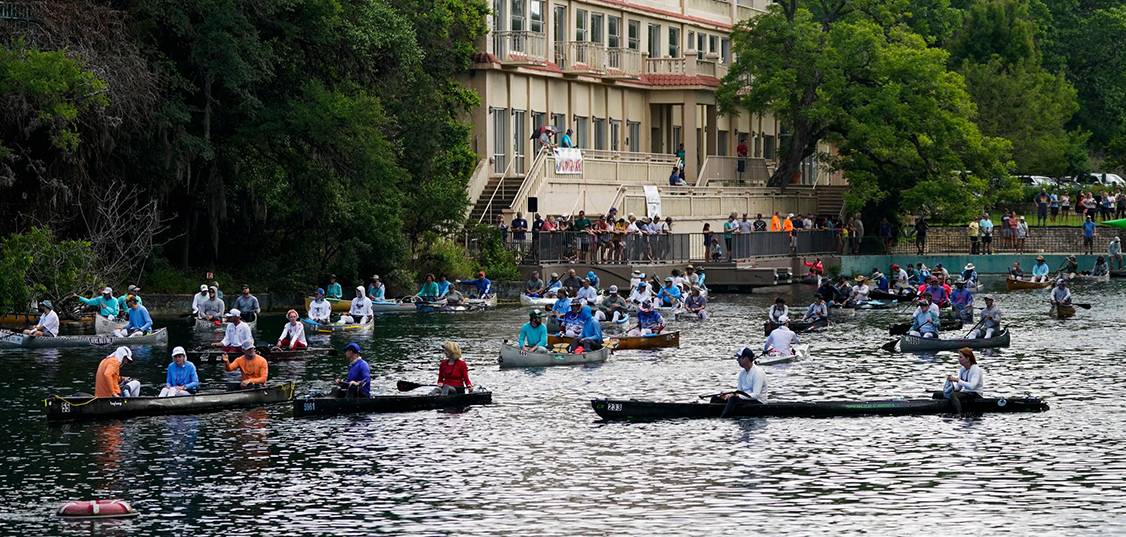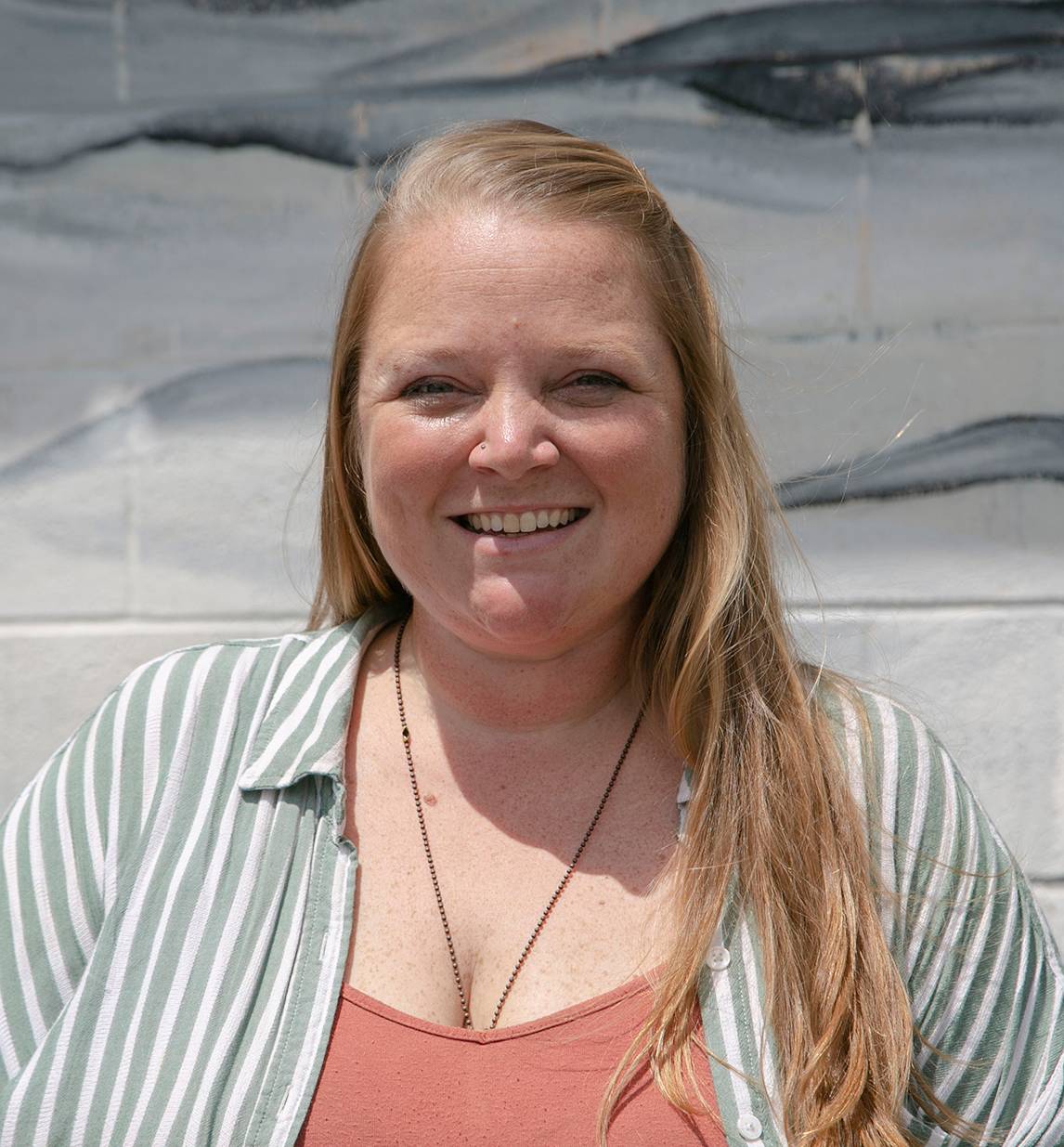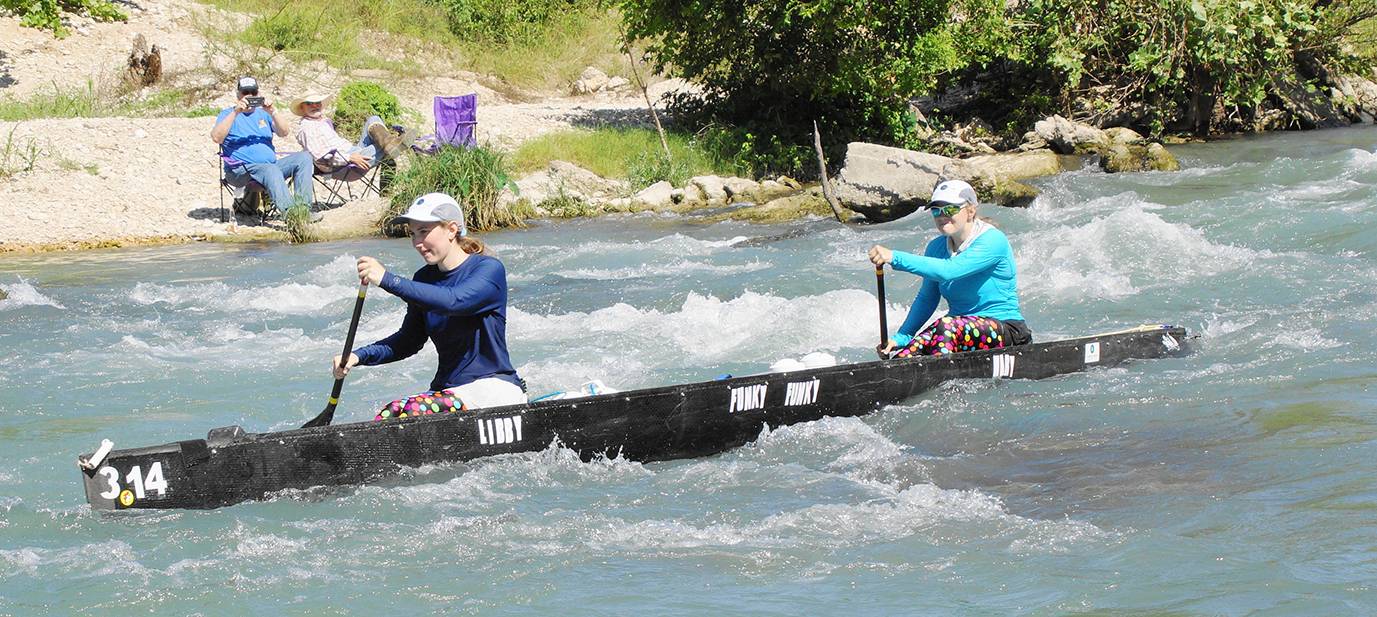Matt Joyce | June 6, 2023

The serenity of Spring Lake will get its annual jolt of competitive churn on June 10 when more than 300 racers in 155 canoes line up in the spring-fed waters for the start of the Texas Water Safari, “the world’s toughest canoe race.”
Texas State University President Kelly Damphousse is scheduled to fire the starting pistol for the race at 9 a.m., launching the boats on a 260-mile course to the coastal town of Seadrift. The racers will paddle down the San Marcos River to the Guadalupe River and then down to the coast, where they’ll cross San Antonio Bay to reach the finish line.
Along the way, the paddlers will navigate challenges ranging from rapids to logjams, muddy portages, stifling heat, sleep deprivation, bay headwinds, and the occasional alligator or snake. If they don’t complete the race in 100 hours or less (meaning rest is an afterthought), they don’t earn the coveted finisher’s patch.
Sounds like fun, right?

“I just feel like I can’t not do it again,” said Kaari Gerber, a TXST graduate student in mathematics. Gerber raced her first Water Safari last year but her two-woman team didn’t quite finish. About 15 miles from Seadrift, they got lost in maze of logjams in the darkness of night near the Guadalupe’s confluence with the bay.
“The experience consumed me, and I would have dreams about it, and it just very much felt like I have to try it again,” said Gerber, a San Marcos native. This year, she has a new partner for her two-woman team, which is called “Witches of the 666” (a nod to San Marcos’ 78666 zip code).
Texas State’s Meadows Center for Water and the Environment is the caretaker of Spring Lake, where springs discharge around 100 million gallons per day to form the headwaters of the San Marcos River. Water Safari participants must clean their boats to ensure they don’t risk introducing invasive species such as zebra mussels, said Miranda Wait, deputy director of Spring Lake Education.
Wait, who will complete her wildlife ecology master’s degree in August, serves as the Spring Lake site coordinator for the race. She helps manage the event registration on Friday before the race and the logistics of race day. But when the canoes take off, Wait hits the road as team captain for her fiancé’s four-man race team dubbed “Fuzzy Nuggets.”
Each canoe team is required to have at least one captain, who is tasked with driving to the race’s 10 checkpoints to meet the team and refill their ice, water, and food. This is Wait’s sixth race to serve as a captain.
“I have to be at each checkpoint, and then there’s some spots in-between that I can go if it seems like they need a little bit more water or whatever,” Wait said. “I’m like their cheerleader. I’ll bring up my megaphone and make sure they’re drinking enough water and that kind of stuff.”

This year marks the 60th edition of the Texas Water Safari. Despite its grueling nature — participants talk of hallucinations when the sleep deprivation sets in — the race seems to hook people, drawing them back repeatedly to test their physical and mental mettle.
Mike Smith graduated from then-Southwest Texas State in 1986 and now teaches theater at Miller Middle School in San Marcos. He is racing with a two-man team in his 16th Water Safari this year. He’s completed the race 11 of the 16 times, including once in a solo canoe.
“I know what it takes to get it done,” Smith said. “It really becomes nothing more than a mental game at a certain point. In my opinion, most people can finish the race if they can get over the mental barriers. You’ve got to have enough physicality to get in the boat and paddle, but to convince yourself to keep doing it for 260 miles takes a little more upstairs.”
Smith said the competition of the race is motivating, but it’s the community that keeps him coming back. “During the race, I curse myself all the time — why the hell am I doing this?” he said. “But after the race, I feel so much satisfaction knowing I’ve completed it and we’re sitting around and telling stories. I enjoy the community so much. That’s where all the fun is.”
Gerber hopes to be among the finishers swapping tales at the finish line this year. Her team has been training about every other weekend since January, paddling different sections of the course to practice. Last year’s near-finish bolstered her confidence and imparted important lessons about equipment and navigation.
“I know it’s doable, I know my body and my mind can handle it,” she said. “My partner and I have put in a lot of miles, and so we’re just going to trust our training and make smart decisions, do dangerous things safely. At the end of the day, paddling on a river with one of your good friends brings a lot of peace and positive feelings.”
Share this article
For more information, contact University Communications:Jayme Blaschke, 512-245-2555 Sandy Pantlik, 512-245-2922 |
